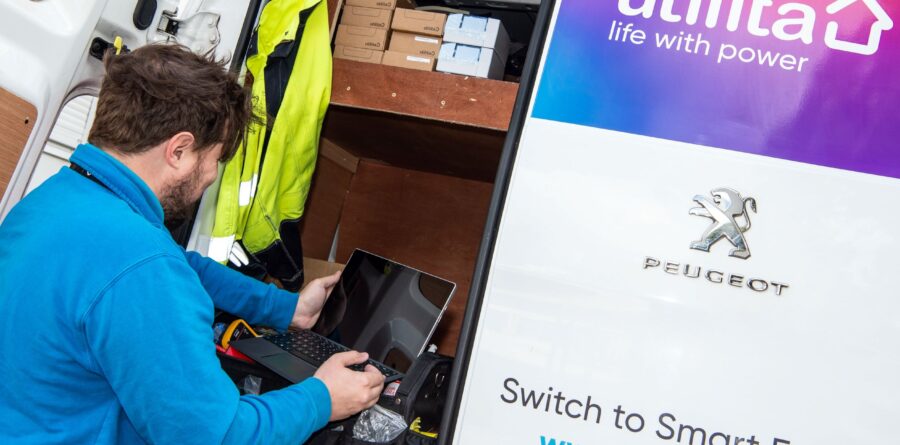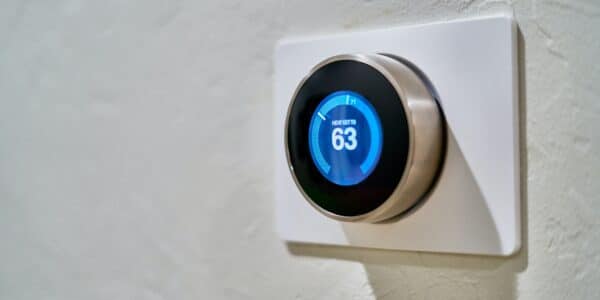Energy boss calls for ‘end to suffering in silence’ for 2.25m households
5/12/2022 - Utilita Energy

EXCESS WINTER DEATHS CAN AND MUST BE AVOIDED THIS WINTER – ENERGY BOSS WARNS GOVERNMENT
* Utilita CEO submits white paper to BEIS and OFGEM, outlining urgent intervention to avoid excess winter deaths associated with energy self-disconnection
* Energy boss warns that 2.25million ‘legacy’ pay-as-you-go (PAYG) households are at risk of self-disconnecting in silence, with no help from their suppliers
* White paper warns Government on the seriousness of misleading or fake news associated with smart meters and PAYG energy
Founder and CEO of Utilita Energy, Bill Bullen, has submitted a ‘red flag’ white paper to BEIS and Ofgem this week, requesting urgent intervention to avoid excess winter deaths caused by households self-disconnecting their energy supply due to a lack of funds.
The white paper focuses on the 2.25 million UK households – 50% of all households who PAYG for their energy – who remain on legacy or ‘traditional’ meters which have no digital connectivity and are like those used back in the 1970s. In the event these households are unable to add credit to their meters, their supplier will not know they have self-disconnected, nor will they be able to provide financial assistance.
The paper presents five major interventions to avoid excess deaths this winter and beyond:
- SMART-INSTALL HOUSEHOLDS – Suppliers must, with immediate effect, prioritise smart installs for all legacy PAYG households.
- NO STANDING CHARGE – PAYG suppliers should align with Utilita in not imposing a separate standing charge on low, or no, usage customers.
- STOP MISINFORMATION – Smart Energy GB and suppliers must urgently improve education and myth-busting to enable legacy PAYG households to switch away from the inferior PAYG experience with confidence.
- END SMART PAYG STIGMA – In the interest of the pocket and the planet, consumer bodies, charities and UK media must make it their responsibility to become better informed on the broader PAYG landscape and superior offerings available in avoidance of misleading consumers and fuelling the outdated PAYG stigma.
- COLLABORATIVE CARE – Energy suppliers, BEIS and the Department for Work and Pensions must work together to better identify a simple strategy for helping every household avoid self-disconnecting.
Bill Bullen, Founder and CEO of Utilita Energy, who has also been calling for one price cap for all, comments on his reasons for submitting the white paper:
“After spending more than two decades revolutionising PAYG energy to deliver a premium digital service that helps households monitor their energy usage via their smartphone, I cannot just sit by knowing that there are 2.25m legacy PAYG households who are currently being under-served and are at risk of self-disconnecting and suffering in silence because of having an outdated meter.
“Unless the customer has refused a smart meter, there’s no excuse for legacy meters to exist today. Having no choice but to sit at home without heating or light is unacceptable and our government and the regulator must intervene immediately to stop self-disconnections for good.”
Sasha Dixon, Head of Utilita’s Extra Care Team, is responsible for a team of specialist call handlers who take as many as 500 calls from vulnerable customers every day:
“Speaking to tens of thousands of low income and vulnerable households each year, the common theme on every call is debt avoidance. For these households, Smart PAYG helps them to avoid bill shock and gives them access to interest-free financial assistance should they need it. In the event that we offer to switch these households to credit mode, most are horrified at the thought of it, and refuse it.
“I know these households well enough to say that if they were forced onto credit mode many would sit in the cold and dark out of fear of running up a large bill they cannot pay. Self-disconnection is not a fault or a result of the payment method – self-disconnection happens because of low income and for that the welfare system is at fault.”
The white paper includes a section on the PAYG energy landscape and the households who prepay for the energy they use, which reveals that 86%of households choose to prepay for the energy – NOT because they have accrued debt.”
A further section busts the common myths about PAYG energy:
Fiction or Fact…
PAYG is more expensive
It shouldn’t be. Bill Bullen has been lobbying Government for one price cap for all – PAYG customers should not pay more.
Credit customers who do not pay by direct debit pay far more than those on PAYG – on average at £156 per annum – and these are often elderly, non-digital households. This payment model also means households can accumulate large debts quickly.
Although there shouldn’t be one at all – the price differential between direct debit and PAYG is relatively small – an average 16 pence a day more for PAYG. The historical idea that all the best deals were for customers paying by direct debit was part of a broken market where many suppliers made unsustainable offers.
It’s inconvenient, outdated and embarrassing
Modern Smart PAYG meters are digitally-enabled, so consequently allow for a wide variety of payment options that include both cash and online card payments.
This means that users can top-up their meters anytime, anywhere using an app. More than 500,000 Utilita customers are regular users of our Smartphone app – or on a web browser. This was particularly important during the Covid-19 lockdown when millions could not leave their homes to top-up. It is also a vital lifeline for those who are infirm or isolated, preventing inevitable self-disconnection.
PAYG meters can be disconnected anytime
Smart PAYG meters can be programmed to not disconnect at inconvenient times such as overnight or at weekends.
Interest-free financial assistance and auto-pay options also help users to cut down the number of times they run out of credit, or for the majority – eliminate them altogether.
PAYG customers are victims and are switched to PAYG mode under duress
Despite this distorted perception in the media, 86% of PAYG customers chose it, while a small minority switched to PAYG as a result of debt. These customers save £156 a year compared to credit customers who pay on receipt of a bill, who are often non-digital households such as the elderly. This is seldom acknowledged by the media or politicians.
Customers are disengaged
Smart PAYG customers fully engage with their supplier, using all the benefits the service has to offer both in terms of PAYG options, communications with the supplier and the receipt of data services aimed at helping them to reduce their carbon footprint.
The full white paper can be accessed here <https://drive.google.com/file/d/1-f0H0vNfLBBKXJI20bigTJmnssBvZ5kD/view?usp=share_link> .
All articles on this news site are submitted by registered contributors of EssexWire. Find out how to subscribe and submit your stories here »

